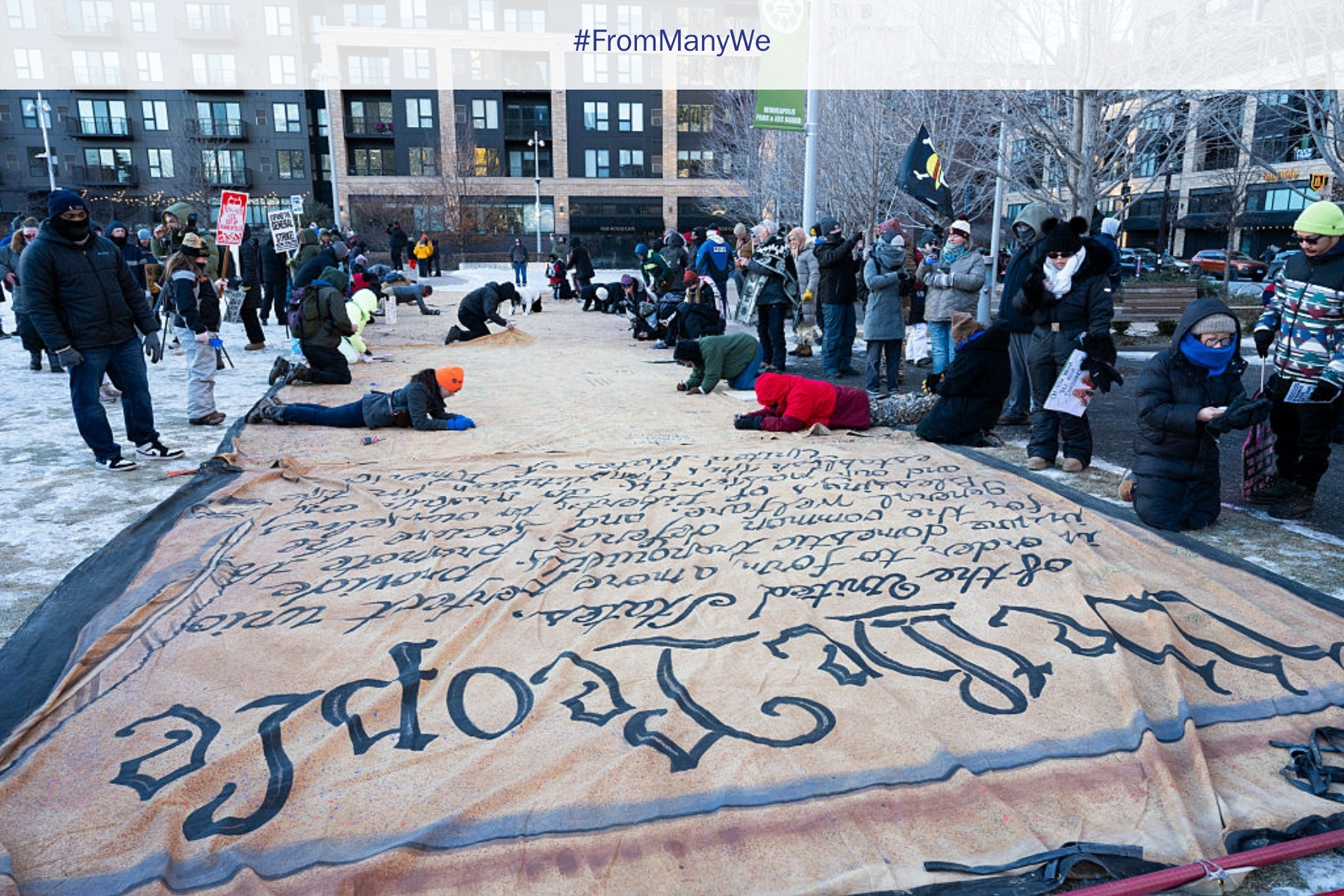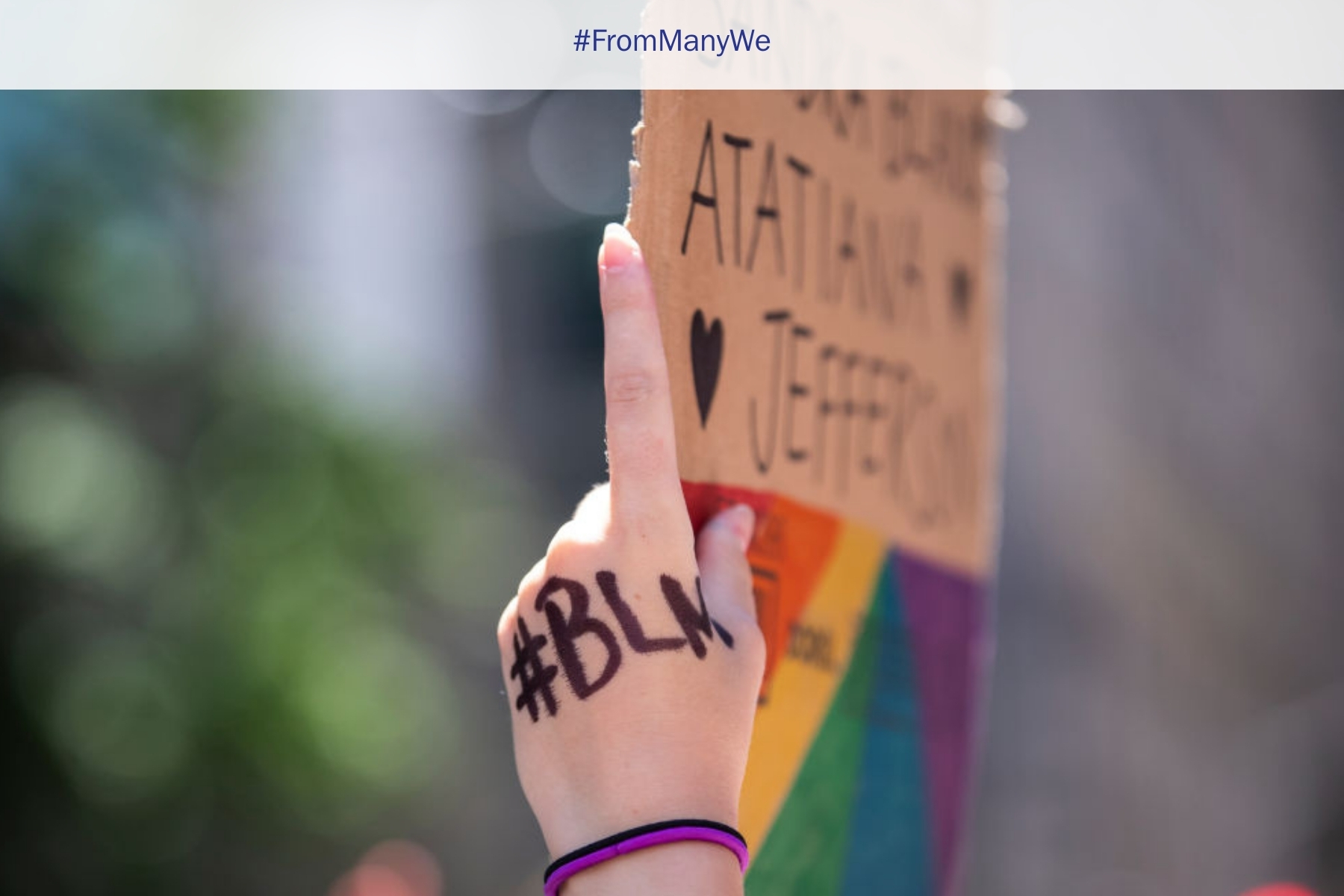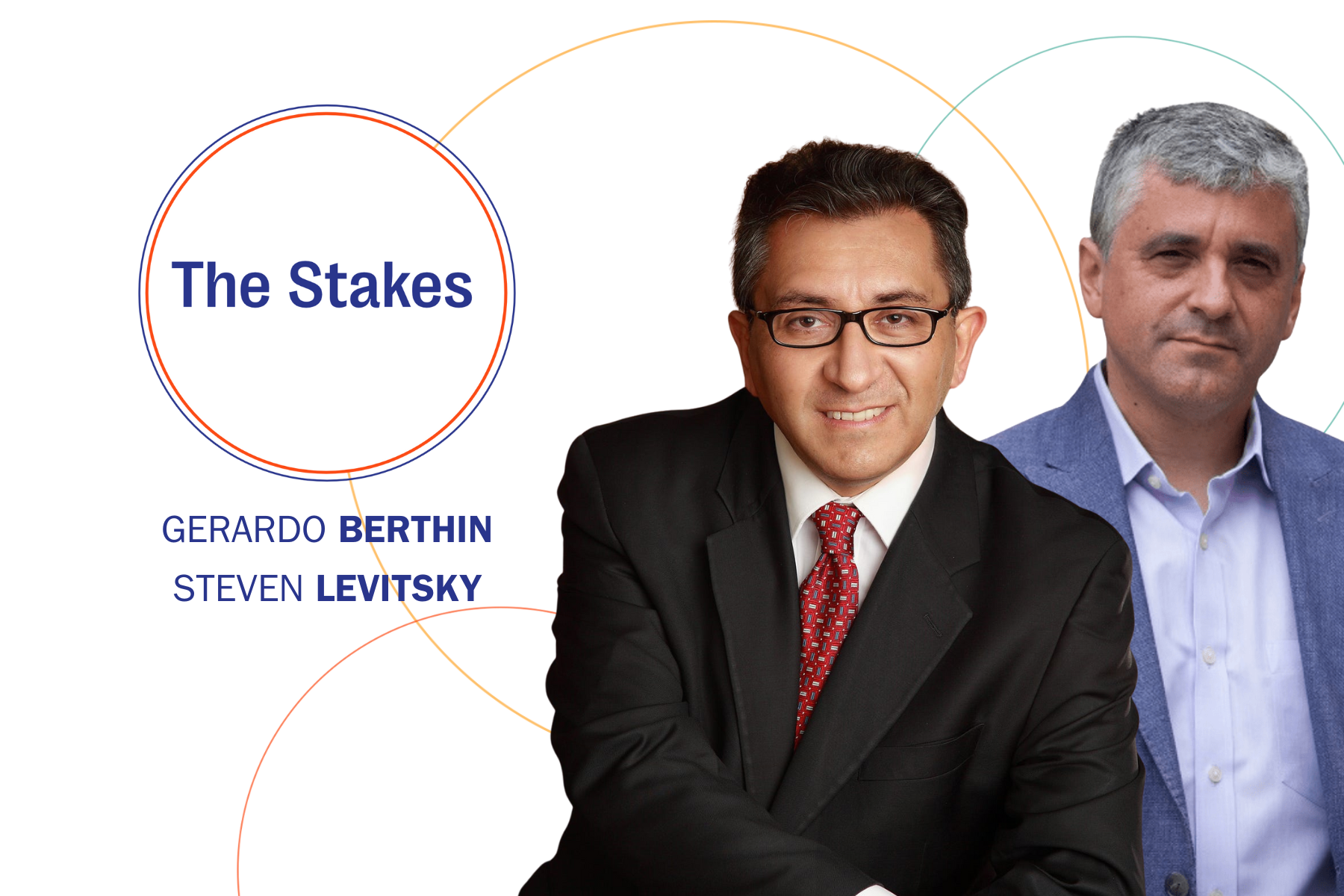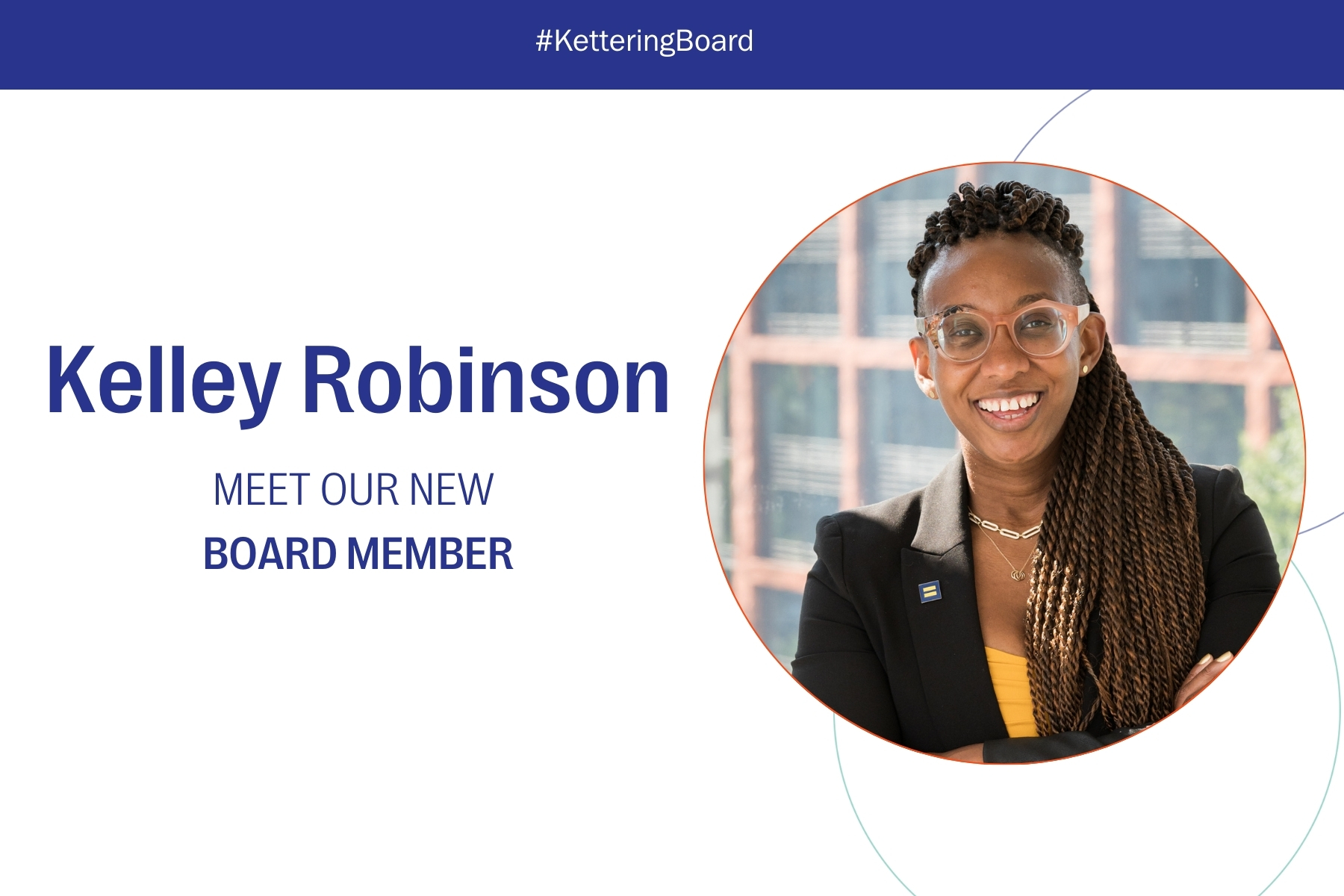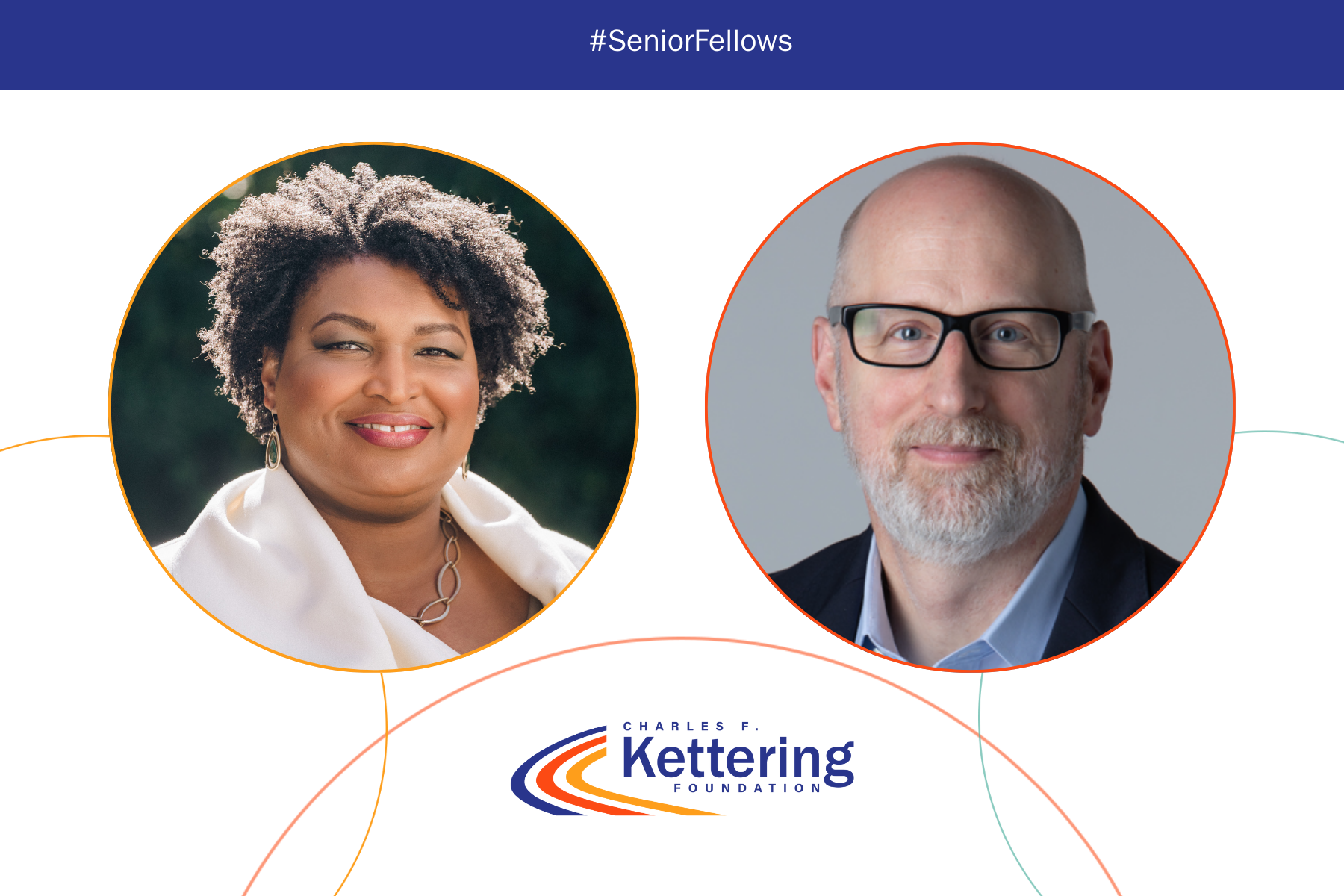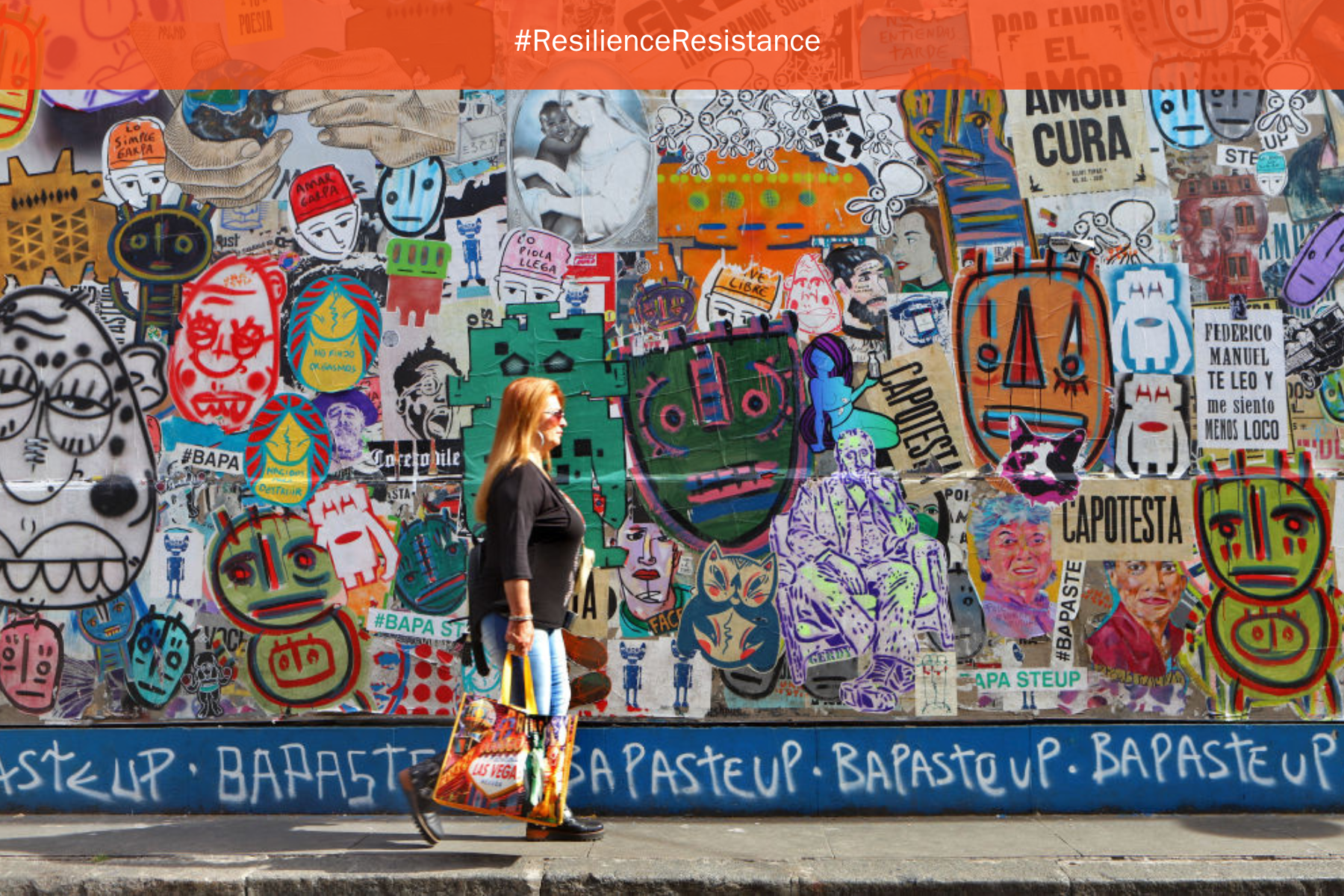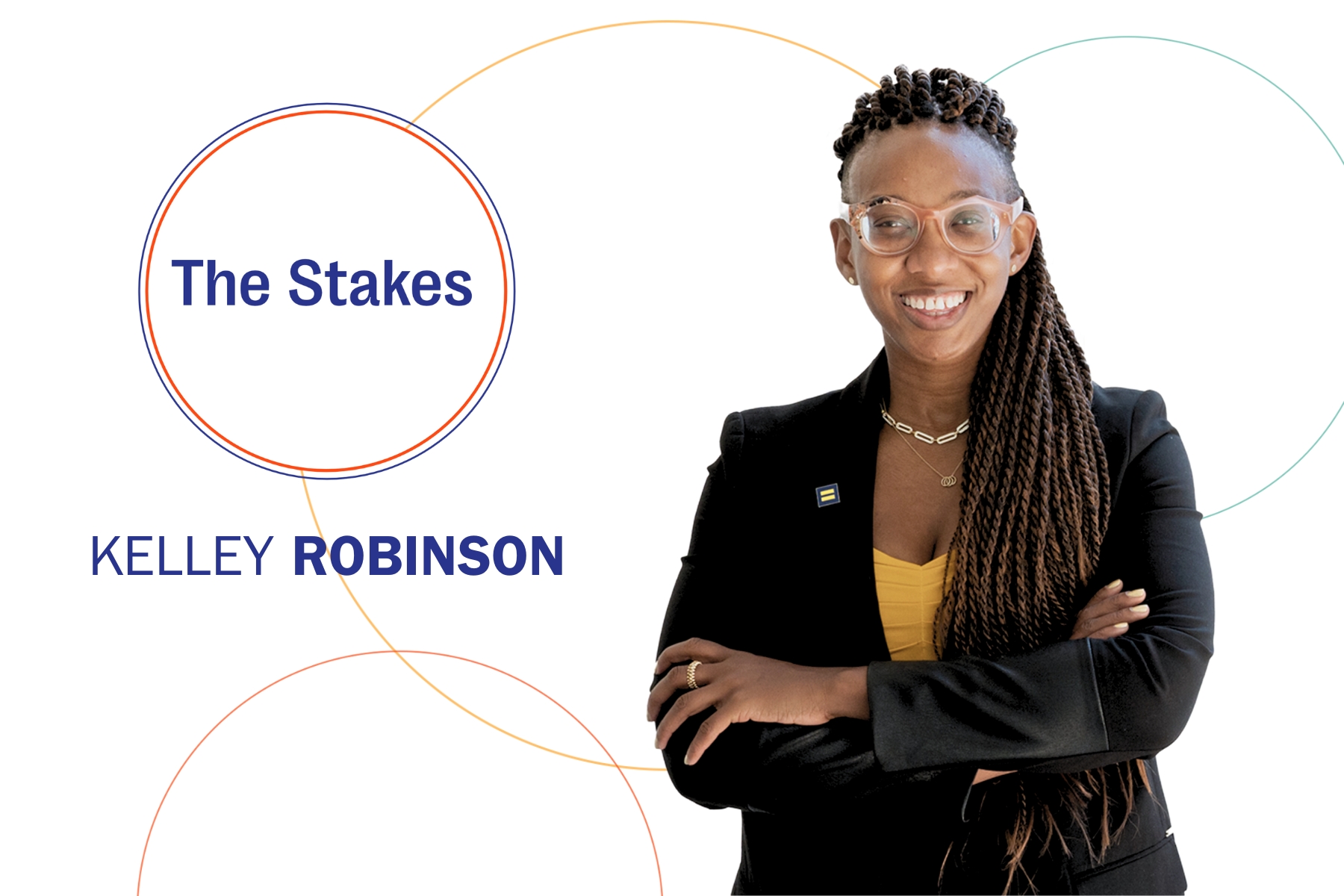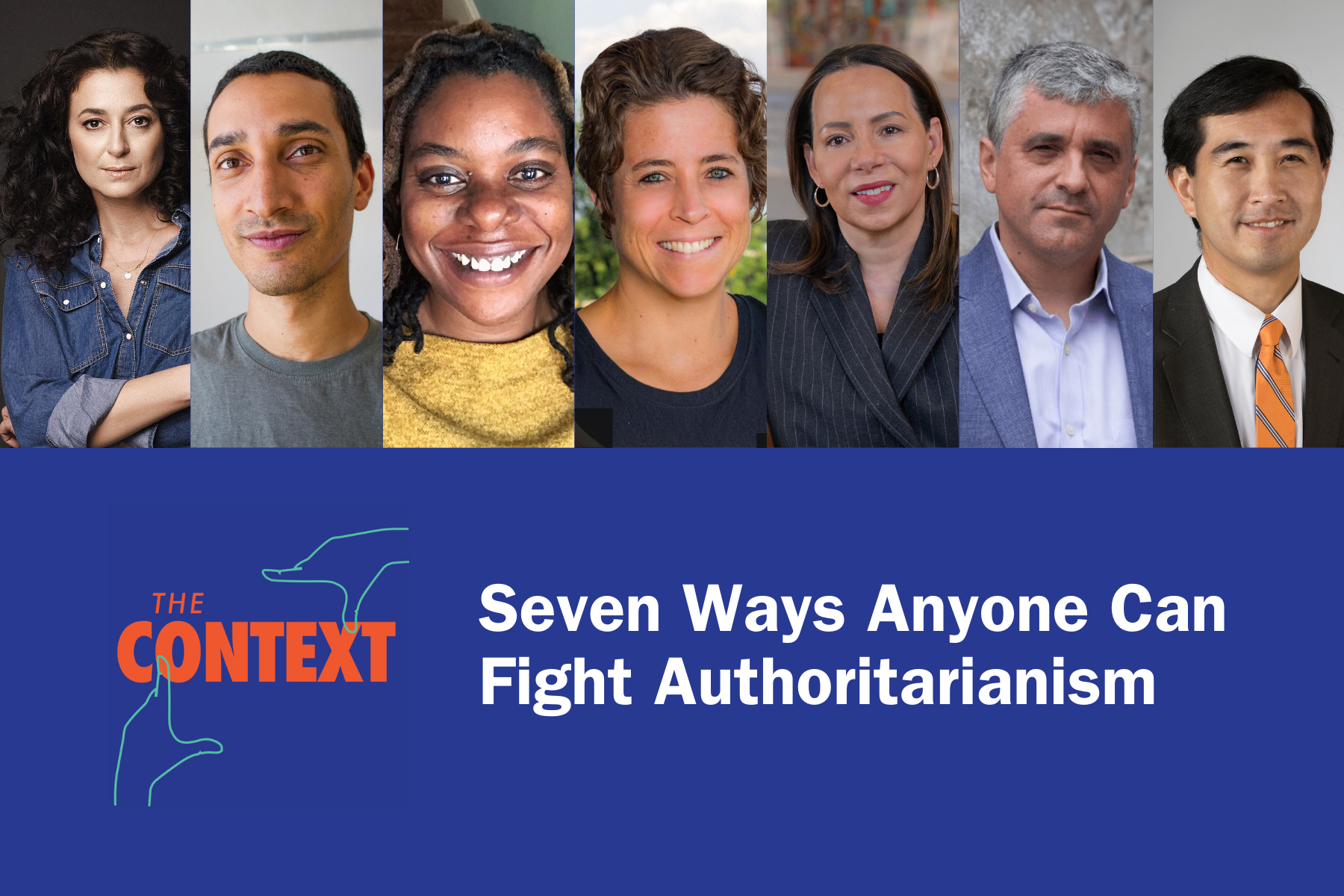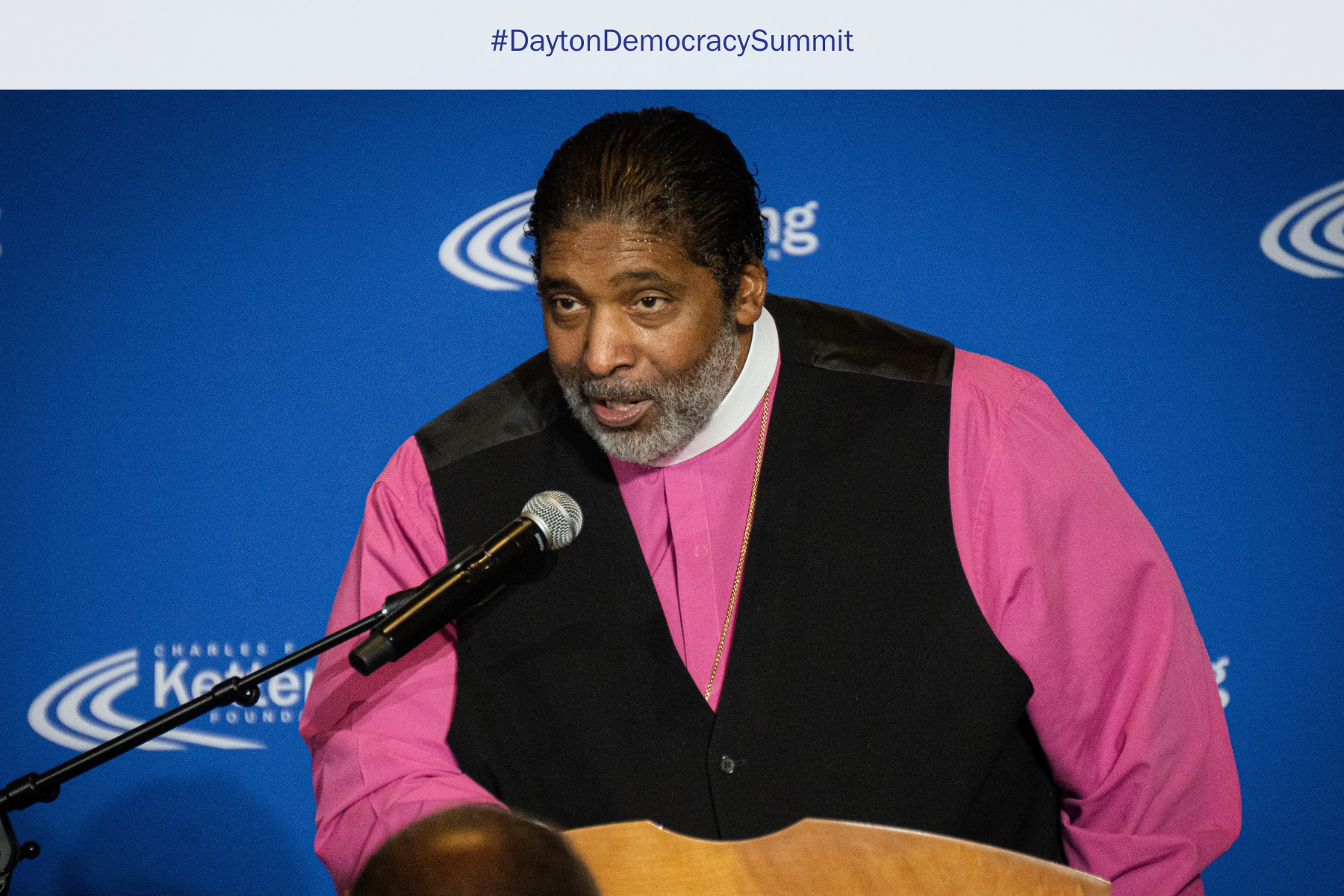Strategies for Defending Democracy Discussed at CBCF Annual Legislative Conference
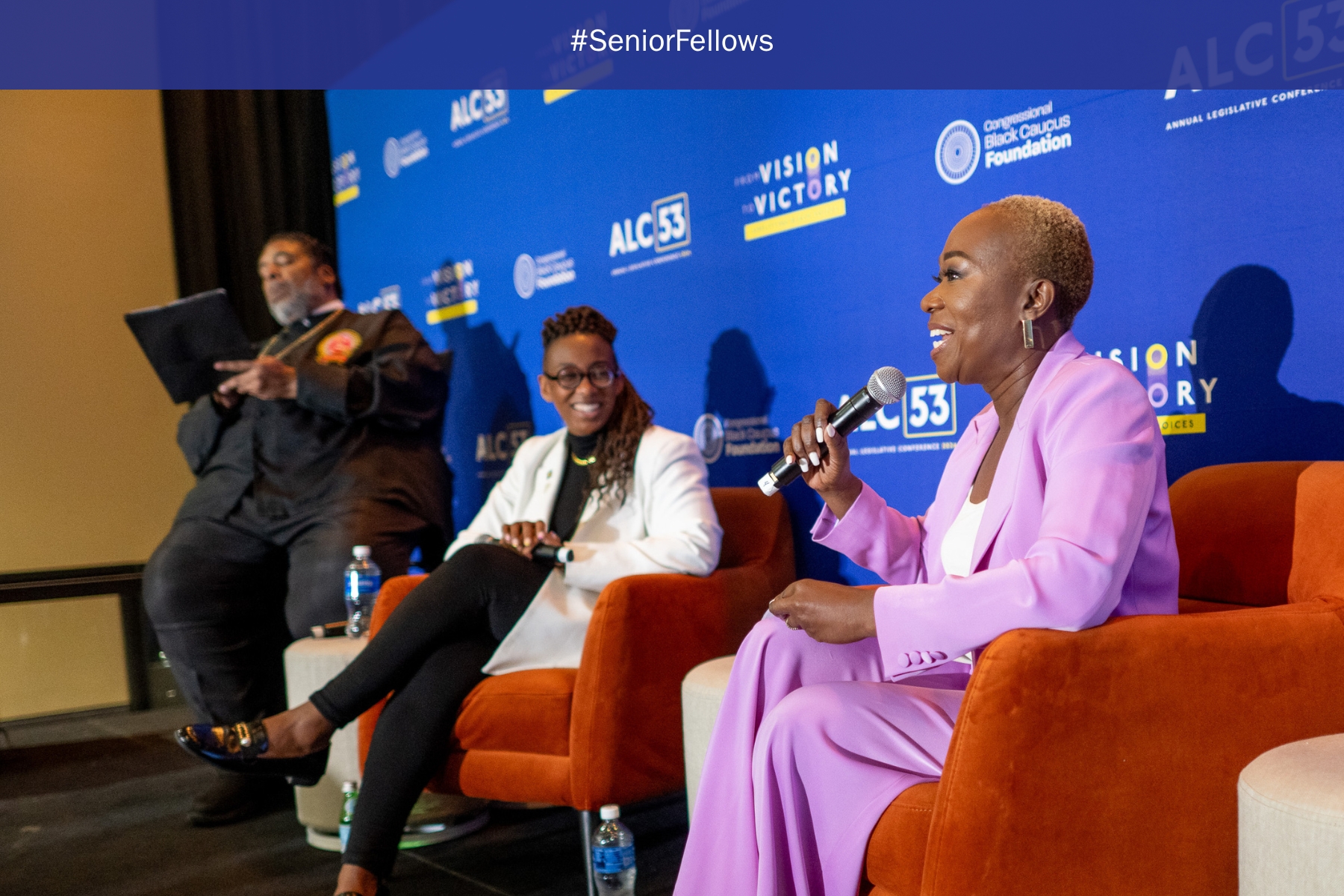
The Charles F. Kettering Foundation hosted “Navigating Democracy’s Challenges: Strategies for Advancing Inclusive Democracy,” a conference session that focused on ways to strengthen inclusive democracy in the wake of threats related to voting rights, women’s rights, and LGBTQ+ rights on September 12 in Washington, DC. The session was held during the 53rd Annual Legislative Conference of the Congressional Black Caucus Foundation (CBCF). The Kettering Foundation was also a sponsor of the conference.
The session featured two Kettering Foundation Senior Fellows: the Rev. Dr. William J. Barber II, cochair of the Poor People’s Campaign and bishop of the Fellowship of Affirming Ministries, and Kelley Robinson, president of the Human Rights Campaign. The panel was moderated by MSNBC national correspondent and host of The ReidOut, Joy-Ann Reid.
Kettering Foundation President and CEO Sharon L. Davies introduced the distinguished panelists. Robinson began by explaining that in 2023, there were more than 500 anti-LGBTQ+ bills introduced in states, many of them targeting trans children. These political attacks caused a spike in suicide rates and suicidal ideology among youth and a situation in our country where one in five hate crimes is now motivated by anti-LGBTQ+ bias. The crisis caused the Human Rights Campaign to declare a national emergency for LGBTQ+ Americans.
“[The opposition is] not about protecting our kids,” said Robinson. “They are about making political moves to cancel our democracy.” Fortunately, neither the LGBTQ+ community nor the Black community is standing on the sidelines. “We have to understand that our fates are intertwined, and when they are making attacks on one of our communities . . . there may be attacks on all of us,” she said.
Reid pointed out that those making these attacks are doing so in the name of what they are calling Christianity. “But I know enough pastors and grew up in church myself to know that this is not Christianity as most of us understand it,” she said. “This is a manifestation of Christian nationalism.” Reid invited the panelists to talk about Christian nationalism and how it’s being used to divide communities, particularly against trans people in general.
Barber responded by saying that the current rendition of Christian nationalism started out as an undeclared war against the New Deal, government help for the poor, and grew to undergird opposition to desegregation as well as civil rights. Christian nationalism is against the teaching of the Bible, he said, and the strongest and most effective response must be for people to unite against this conservative movement.
“If you can bring together people into a voting bloc who are affected by actions against their race, gender, sexuality, that sparks fear” on the part of the opposition, Barber said.
“So how do we push back in a way that stops what is now essentially a religious movement from taking over our politics?” asked Reid.
Robinson replied, “We are at a crisis point for what it means to preserve our country as a representative democracy. . . . The majority of this country is on the side of all the things that we care about in this room, on the side of freedom and equality, on the side of creating a space for all of us, regardless of your sexual orientation, gender identity or race, or how much money you make. But the way that the [political] systems are set up is to block that from being the reality.” “Think about the number of times where the popular vote did not reflect the Electoral College or who actually became president.”
Reid pointed out that for the average person, the way to influence the status quo is simply being able to vote, but voting rights are being rolled back. “How do we beat that back when so many Black people are being silenced in these red states, where their right to vote is being seriously curtailed?” she asked.
Barber pointed out that hundreds of thousands of poor people did not vote in the last election. And yet the election was decided by a minority of votes in select states. “In many of those states, if you just had 10 percent of the poor going forward and voting, they could change the margin of victory,” he said.
So what is the problem? One is that, too often, politicians don’t campaign in poor neighborhoods or talk to low-income voters, Barber said. “You cannot win elections if you don’t talk to them.”
Reid agreed, saying that Democrats too often approach voters with a middle-class framework in mind. The groups who are talking to voters, she said, are trolls on social media feeding them lies.
“The opportunity here is that there should be no state that’s off the table for us to win, period,” said Robinson. “Putting abortion on the ballot is starting to teach us this. It won in Kansas. It won in Ohio. It won in Montana.” Gen Z in particular is an untapped resource. “They see gender and sexuality way, way differently. And they are forcing this conversation.”
Barber emphasized that turning out low-wage voters is also an untapped opportunity. “These are not swing states, they are unorganized states,” he said. Barack Obama won in North Carolina in 2008 for the simple reason that “he talked to poor and low-wage people. . . . If you talk to them, you get to turn the entire electorate upside down.”
